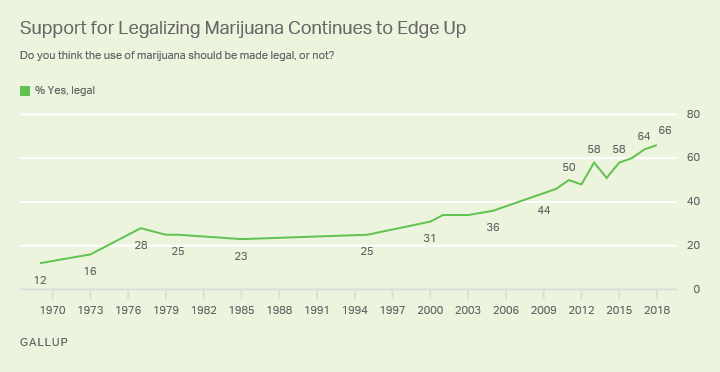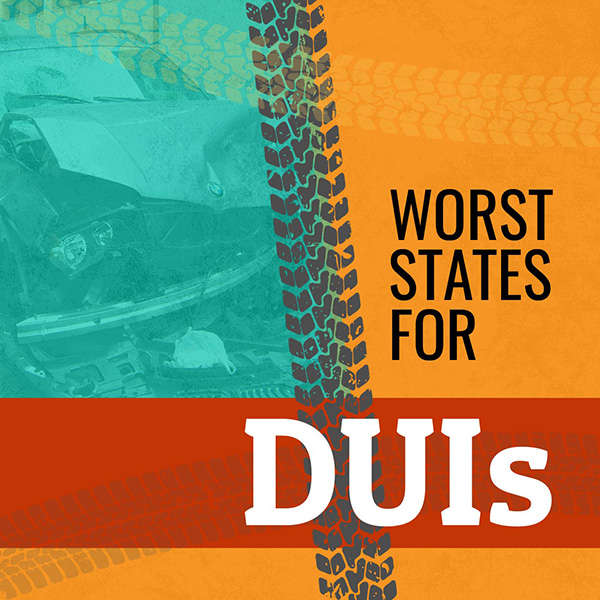US Drug Test Centers Research Articles
Drug Free Workplace – Policy and Training
Setting up a drug-free workplace for your business is more important than ever. Substance abuse is at an all time high with over 21% of Americans admitting to using illicit drugs in the past year. Employers must take appropriate action to maintain a safe workplace and implementing a policy on drug testing is a major part of this effort. Employers can save money with a drug free workplace seeing fewer accidents, less workers comp claims, less turnover and higher productivity. Help to eliminate your exposure to liability by implementing a comprehensive drug free workplace program.
In this report we will cover:
What Is A Drug Free Workplace Policy And Why Is It Important
When Is Non-DOT A Drug Free Workplace Policy Required
What Are The Penalties For Not Implementing And Maintaining A Drug Free Workplace Policy
Getting Help To Create You Drug Free Workplace Policy
What Is A DER
Training For The DER
Training For Supervisors – Reasonable Suspicion
Best Practices For Drug Free Workplace Programs
Take time to learn more about the immediate benefits of drug testing and having a drug-free workplace program in place for your company. Information and Drug-Free Workplace Policy Manuals are available from US Drug Test Centers.
What Is A Drug Free Workplace Policy And Why Is It Important
If you ask any employer, are you a drug free workplace, most will say yes. But are they really a drug free workplace?
Having a Drug-Free workplace means that you have a comprehensive program that addresses illicit drug use and alcohol misuse in the workplace. The Substance Abuse and Mental Health Services Administration (SAMHSA) defines this comprehensive program as one with five major components.
- A Written Policy
- Employee Education
- Supervisor Training
- Drug Testing
- Employee Assistance Programs
Now if you are an employer or senior manager, do you have these components in your company?
The drug free workplace program is important because it helps employers create safe, cost-effective, and healthy workplaces. Drug free companies are able to reduce drug-related accidents and the liability issues and lawsuits that can arise from such accidents. Employees are concerned when their co-workers use illicit drugs, the drug free workplace increases employee morale.
When Is DOT A Drug Free Workplace Policy Required
The DOT regulation for drug and alcohol testing is 49 CFR Part 40. This regulation addresses how DOT drug and alcohol testing is conducted. Each of the DOT agencies has additional regulations regarding who is tested and when they are tested. These DOT agencies also point out other regulatory requirements for employers with their drug and alcohol testing programs, for example policy and training requirements.
| Dot Agency | Description and regulation |
| Federal Aviation Administration (FAA) | For employers and employees in the aviation industry 14 CFR Part 120 |
| Federal Motor Carrier Safety Administration (FMCSA) | For carriers and commercial driver's license holders (CDL) 49 CFR Part 382 |
| Federal Railroad Administration (FRA) | For employers and employees working in the railroad industry 49 CFR Part 219 |
| Federal Transit Administration (FTA) | For employers and employees working in the mass transit industry 49 CFR Part 655 |
| Pipeline & Hazardous Materials Safety Administration (PHMSA) | For operators and employees working in the pipeline industry 49 CFR Part 199 |
| United States Coast Guard (USCG) (now with the Dept. of Homeland Security) | For employer and employees operating commercial vessels 46 CFR Part 16 46 CFR Part 4 |
It is in these DOT agency regulations that we find that DOT regulated employers are required to implement drug and alcohol testing program policies. For example, the FMCSA Part 382 regulation section 382.601 Section 382.601 is titled: §382.601 Employer obligation to promulgate a policy on the misuse of alcohol and use of controlled substances.
Another example is FAA regulation Part 120, Section 120.115 states “(2) The employer's policy shall include information regarding the consequences under the rule of using drugs while performing safety-sensitive functions, receiving a verified positive drug test result, or refusing to submit to a drug test required under the rule.”
When Is Non-DOT A Drug Free Workplace Policy Required
Non-DOT refers to employers or employees that are not regulated by the US Department of Transportation (DOT). Some States have voluntary drug free workplace programs that offer a workers compensation insurance discount for employers that implement a drug free workplace program. These states all require the employer to have a written drug and alcohol testing policy as part of their drug free workplace program. Participation in the States drug free workplace program is voluntary but once opting in the policy is required.
Most states allow unemployment compensation to be denied when an employee is terminated from employment due to a positive test or refusal to test. In order to have this denial upheld, the employer must have a written policy that specifically states that a positive test or refusal to test would be a violation of company policy and is misconduct.
Some states allow that after an accident, an employee with a post-accident positive test or refusal to test could be denied workers compensation benefits. In order to have this denial upheld, the employer must have a written policy that specifically states that a positive test or refusal to test would be grounds for a denial of the workers comp claim. The ideas is that the use of drugs or alcohol caused the accident
There may be other situations where it is a good idea and best practice for an employer to maintain a drug free workplace policy. The written policy will help the employer to limit exposure to liability in their drug testing program.
Here are a few other good reasons to have a Drug Free Workplace Policy:
- Your company does business with US Federal or State Government and the Drug Free Workplace Policy is a requirement (Drug Free Workplace Act – 1998)
- Your company is hired to do work for another company, this other company requires by contract that your company maintain a Drug Free Workplace Policy
It is never a good idea for an employer to conduct employee drug testing without a written policy.
What Are The Penalties For Not Implementing And Maintaining A Drug Free Workplace Policy
The section above talks about Non-DOT employers and when to have a Drug Free Workplace Policy. In the instance cited above, not having a Drug Free Workplace Policy could cause issues such as:
- Loss of a Federal or State Contract
- Loss of a contract with another private employer
- Inability to deny an unemployment claim
- Inability to deny a worker’s comp claim
- Loss of workers compensation insurance discount
- Inability to show a proper defense in a wrongful termination lawsuit
For DOT regulated employers, the penalties for not implementing and maintaining a drug free workplace policy could lead to monetary fines from the applicable DOT agency. This is a loss of cold hard cash and could be thousands of dollars.
FMCSA regulations 382.115(a) require a motor carrier to implement a drug/alcohol testing program. In April of 2022 we saw an extremely high penalty just for the violation of not having a testing program; the amount was $12,010.00. Other penalties in the last four years:
- Failing to do random alcohol tests at the applicable annual rate, 382.305(b)(1) - $22,620 in November 2021
- Using a driver while under the influence of alcohol - $11,720 in October 2021
- Failure to run a query in the FMCSA Clearinghouse on a driver before the driver actually drove a commercial motor vehicle on commercial roads - $4,180 in May 2022
- Failure to conduct a required DOT post-accident test - $8,140 in Oct 2021
FAA violations of the required drug and alcohol testing programs can begin at over $12,.000.00 per violation. In recent years, FAA has issued civil penalties ranging from $173,500 to $211,000 against three companies for alleged violations of the federal drug and alcohol testing regulations
Not following the DOT and applicable DOT agency regulations for drug & alcohol testing can cost your company money. These fines can be avoided with assistance from a professional drug testing company (TPA) such as US Drug Test Centers.
Getting Help To Create You Drug Free Workplace Policy
A professional Consortium/Third Party Administrator (C/TPA) like US Drug Test Centers is your best source for assistance in creating your drug free workplace policy. You can certainly attempt to do this on your own but professional assistance is the most efficient option. The Substance Abuse and Mental Health Services Administration (SAMHSA) does provide a free Drug-Free Workplace Toolkit to provide information to help employers develop and sustain successful drug-free workplace programs.
Learn more from US Drug Test Centers about our comprehensive Drug-Free Workplace Policy Manuals available to new and existing clients at affordable pricing. These are custom policies tailored to your business. US Drug Test Centers goes above and beyond with custom drug free workplace policies for both DOT regulated and Non-DOT regulated businesses.
What Is A DER
The DER or Designated Employer Representative is the person at a company that is in charge of the drug and alcohol testing program. This person must have intimate knowledge of drug testing regulations and the company policy on substance abuse.
It is the DER that removes an employee from a safety sensitive position after a refusal to test or a positive test. The DER must provide instructions to the applicant or employee regarding the return to duty process. Decisions required in the testing process, and receipt of test results is the responsibility of the DER. The DER must be an employee of the company, this function cannot be outsourced.
For owner operators there is an exception regarding the DER being an employee of the company. A Consortium/Third Party Administrator (C/TPA) can stand in the shoes as the DER for owner operators.
DOT regulation 49 CFR Part 40 requires the DER to be available for questions and guidance 24/7. A phone number should be provided to the C/TPA, Collection Sites, Medical Review Officer (MRO) and the employees so that the DER can be contacted for questions regarding the drug and alcohol testing process.
Training For The DER
DER training is not required by the DOT or any of its agencies. DER training is highly recommended for any person in the position of a DER. Without training, how would the DER know what to do? The DER should learn all about 49 CFR Part 40, the specific DOT agency regulation and the Company drug and alcohol testing policy.
US Drug Test Centers provides comprehensive computer based remote DER training. Custom training for employer organizations is also available, call 866-566-0261.
Training For Supervisors – Reasonable Suspicion
Reasonable suspicion testing is a requirement listed in all the DOT Agency drug and alcohol testing regulations. The determination of reasonable suspicion must be made by a supervisor trained on signs and symptoms of probable use of drugs or alcohol just before or during work hours. Supervisor training is a requirement. This is generally a two-hour program designed to enable a supervisor to determine whether reasonable suspicion exists to require testing.
US Drug Test Centers provides comprehensive computer based remote supervisor trainings. Live webinars and custom live trainings also available, call 866-566-0261.
Supervisor training adds to an employer’s commitment to provide a safe workplace. A form should always be used to document signs and symptoms that lead to a reasonable suspicion drug and alcohol test. DOT reasonable suspicion determinations must be based on specific, contemporaneous, articulable observations concerning the appearance, behavior, speech, or body odor of the safety-sensitive employee. Reasonable suspicion testing should be conducted just before a shift, while working or just after a shift.
Best Practices For Drug Free Workplace Programs
Our best practices questions listed are designed to help you determine if you would survive a DOT audit or inspection. Avoid liability, penalties and fines by staying in compliance with DOT regulations for the drug and alcohol testing program. Non -DOT employers should look at the DOT requirements as a best practice.
- Do you have a written drug and alcohol testing policy?
- Are you following your own policy?
- Is your program in compliance with the appropriate DOT testing regulations, State laws or best practices?
- Are you providing supervisor training on reasonable suspicion testing to your supervisors?
- When employees test positive or refuse to test are they removed from performance of safety sensitive duties and provided a list of SAPs for the return to duty process?
- Do your service agents correctly carry out their responsibilities for which you hire them in compliance with DOT, DOT agency regulations, State laws and/or best practices?
- Do you and your service agents maintain adequate documentation and required record keeping regarding your drug and alcohol testing program?
If you can answer Yes to all of the above seven questions you should survive a DOT audit or inspection of your drug and alcohol testing program. For assistance, guidance, consultation and expert drug and alcohol testing services contact US Drug Test Centers. Call for immediate assistance - 866-566-0261.























